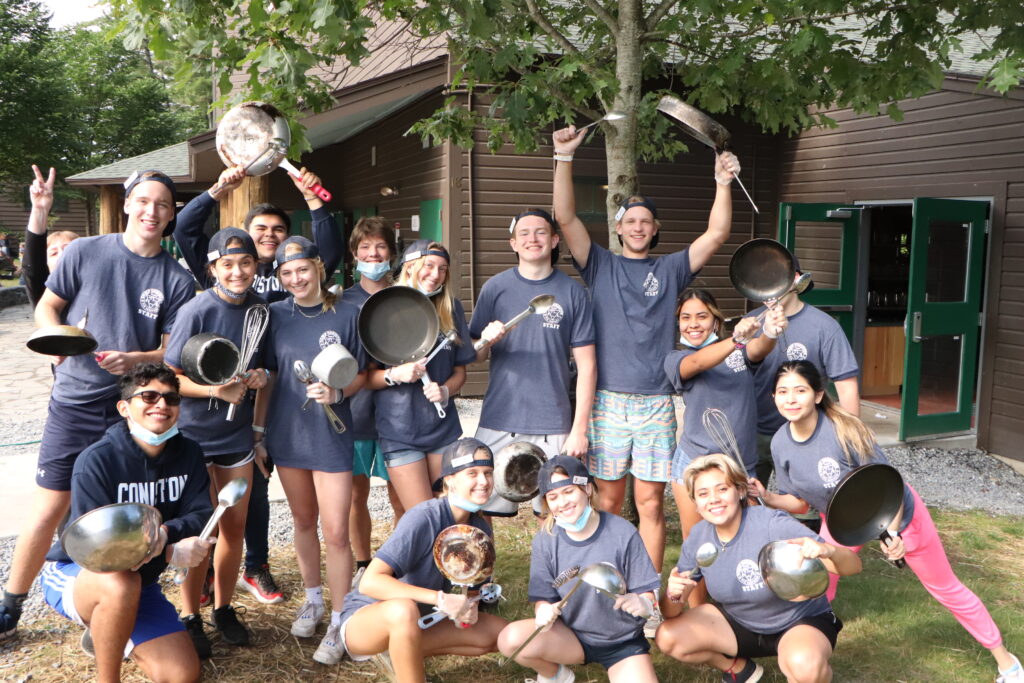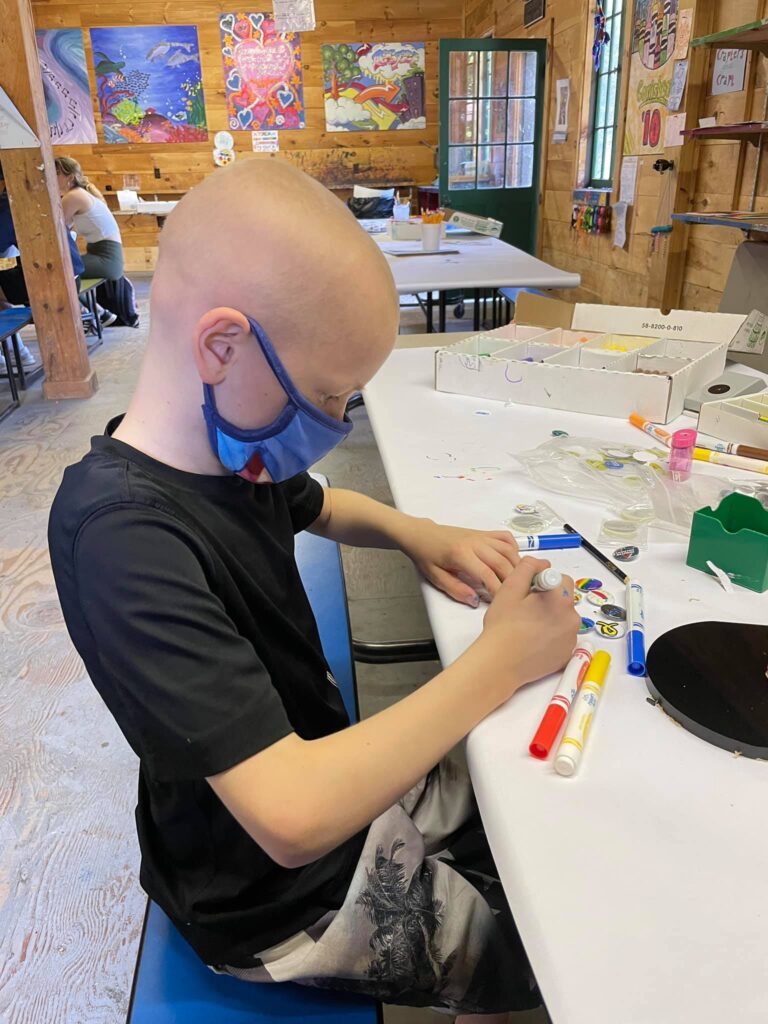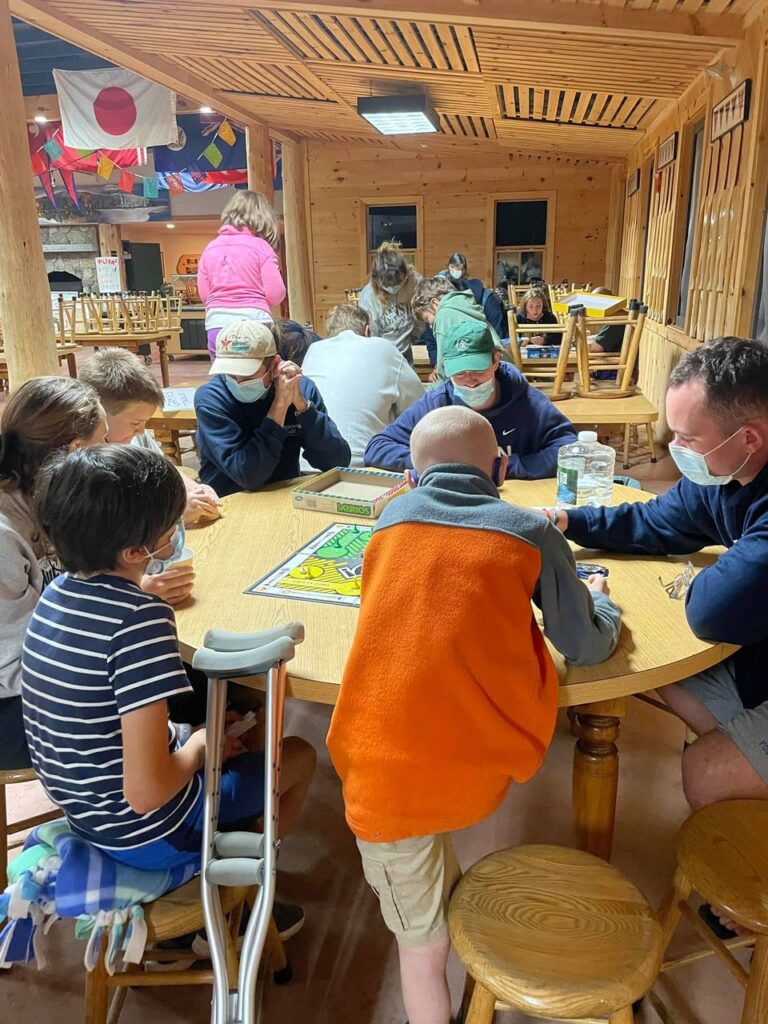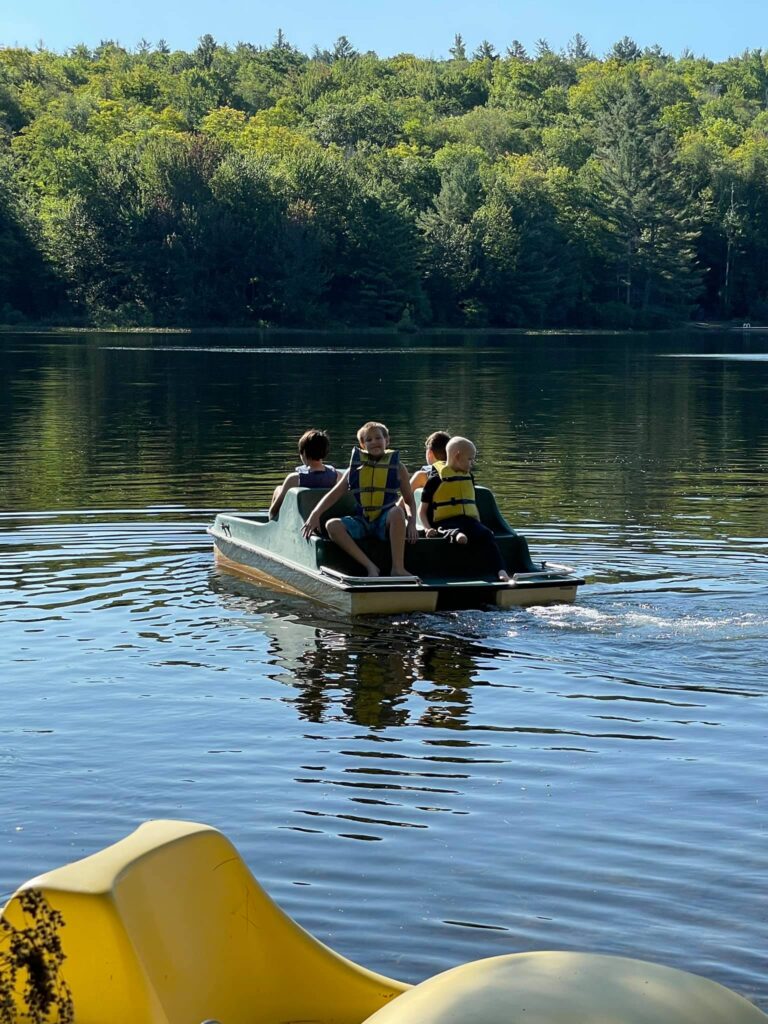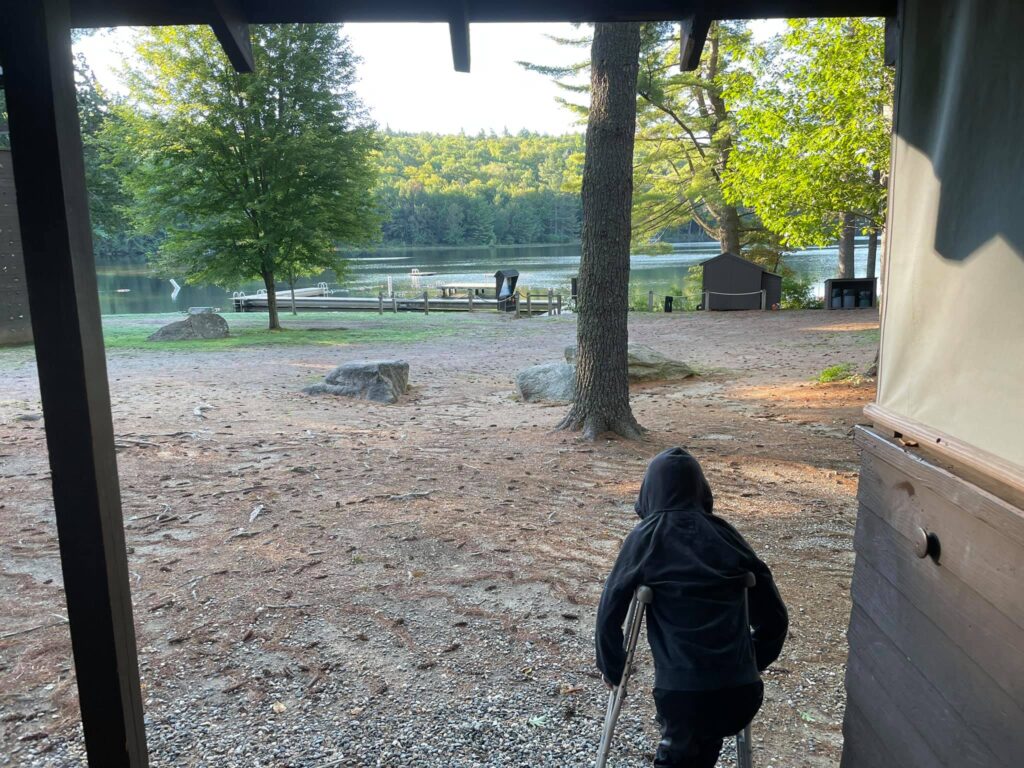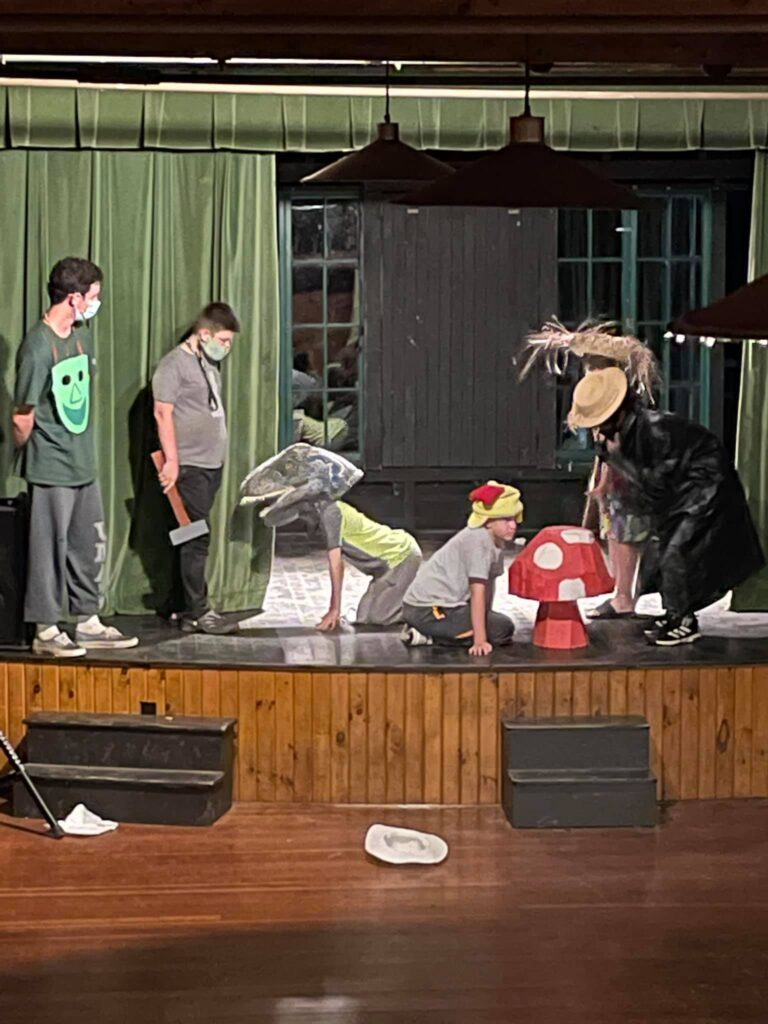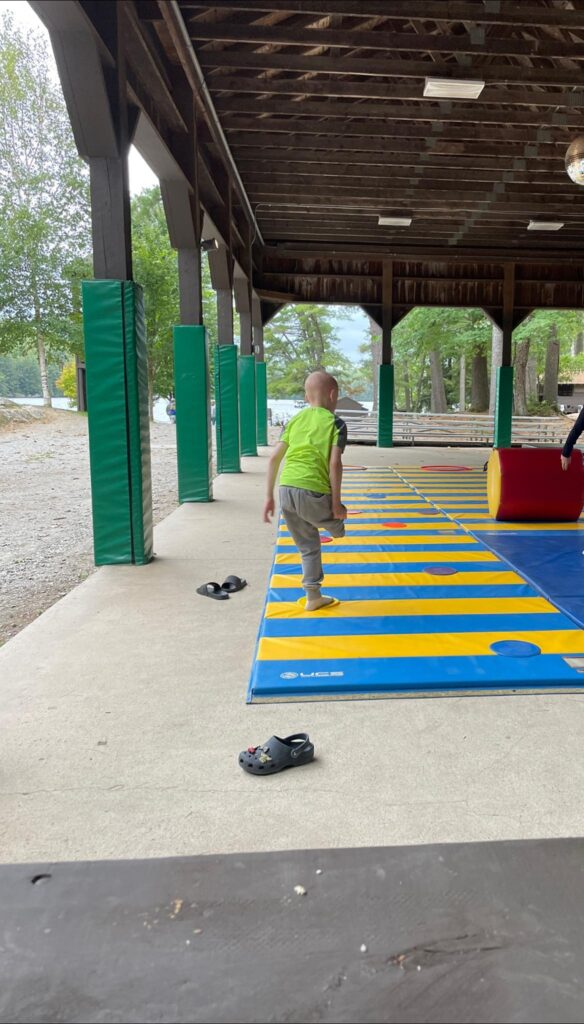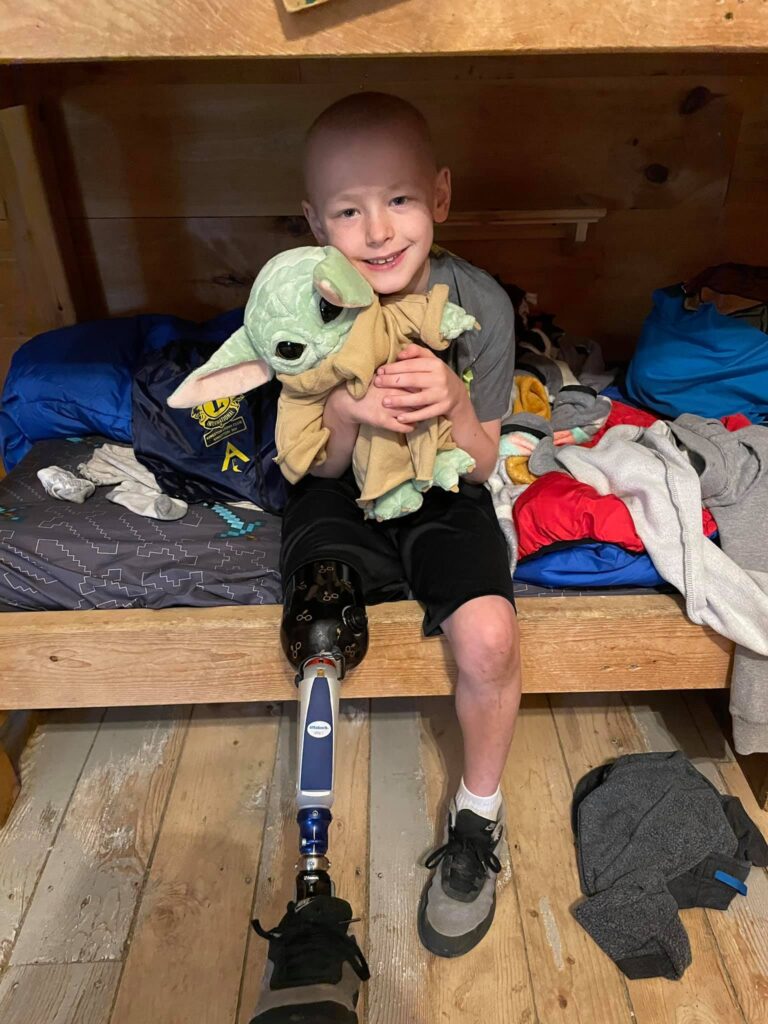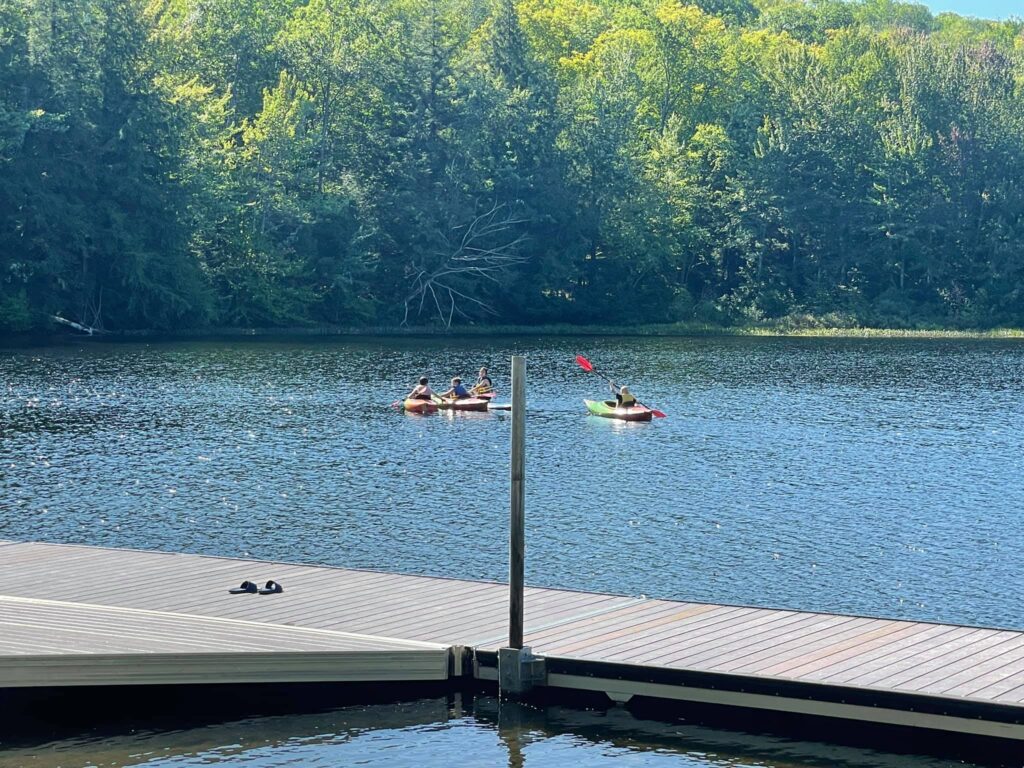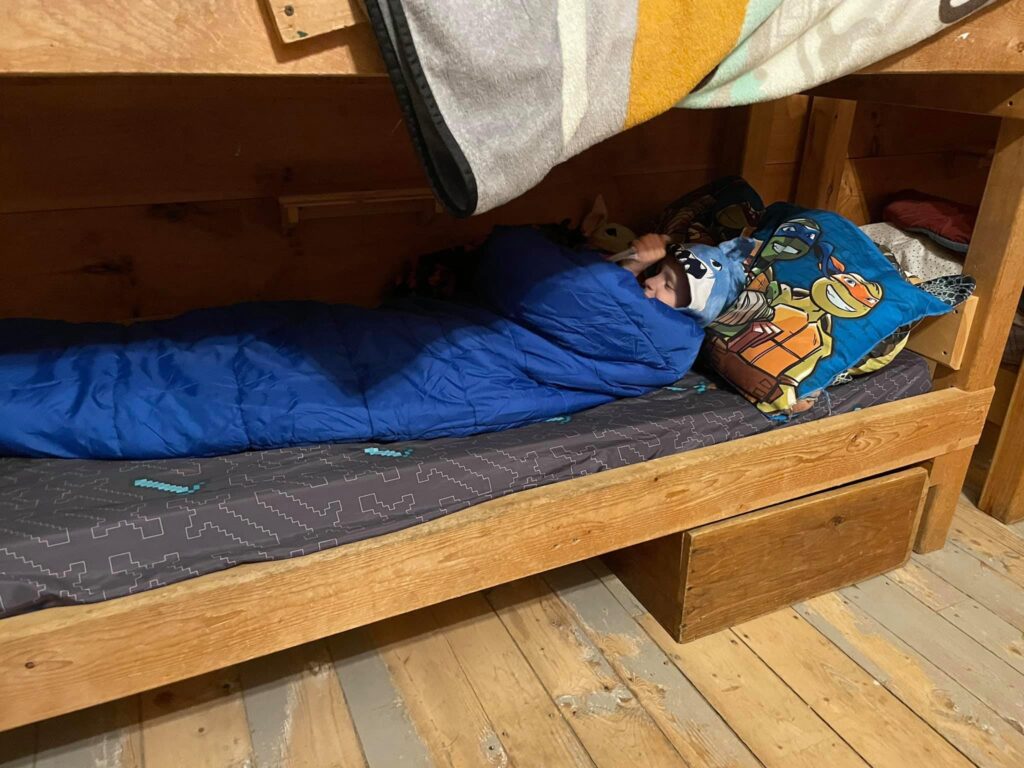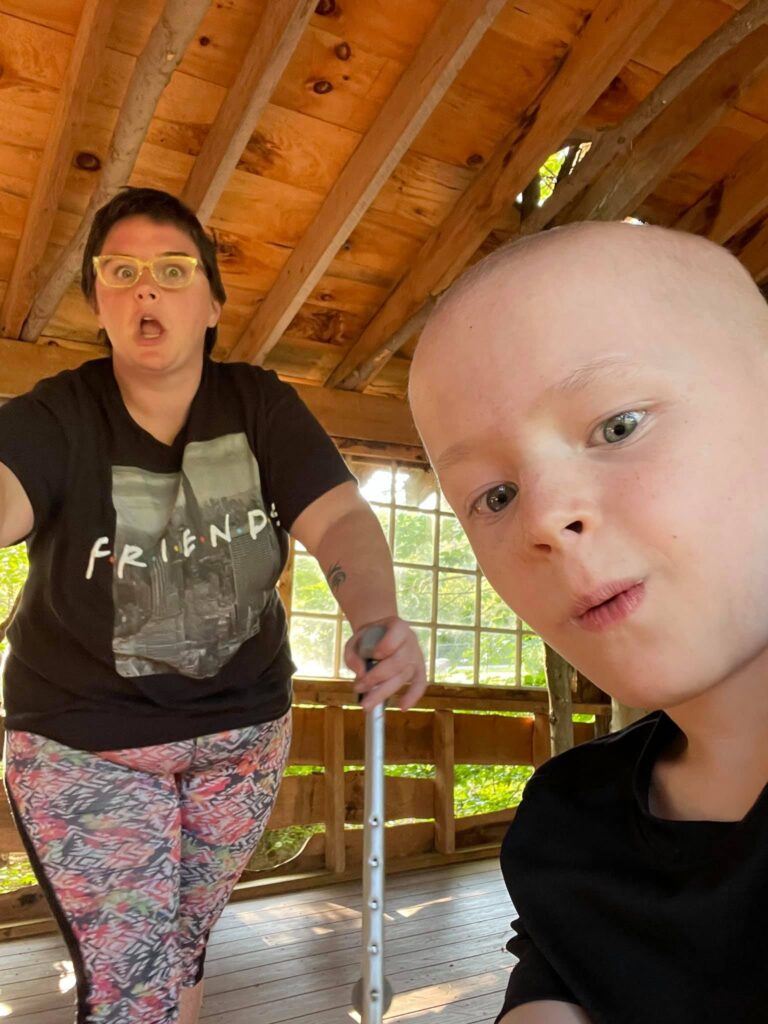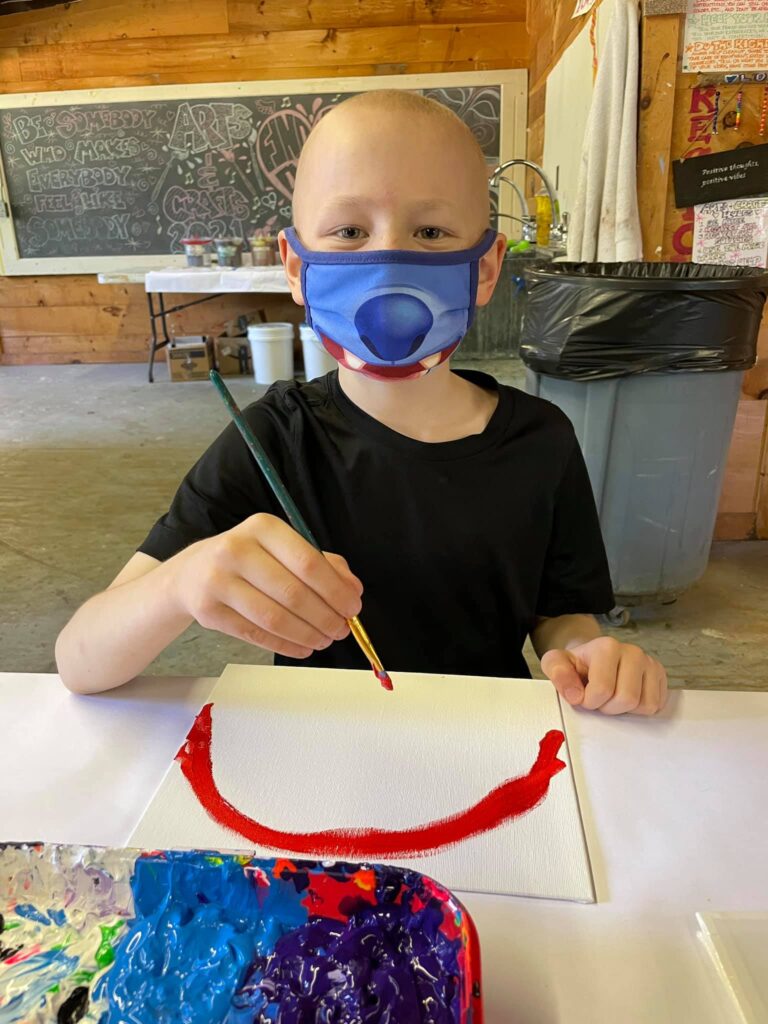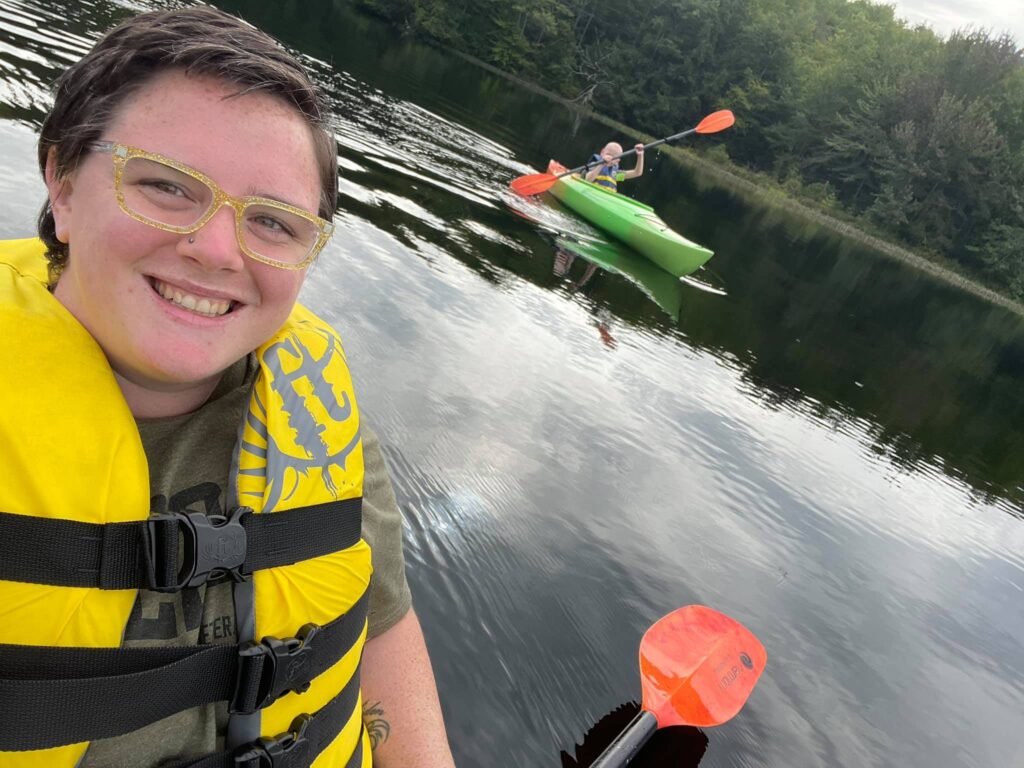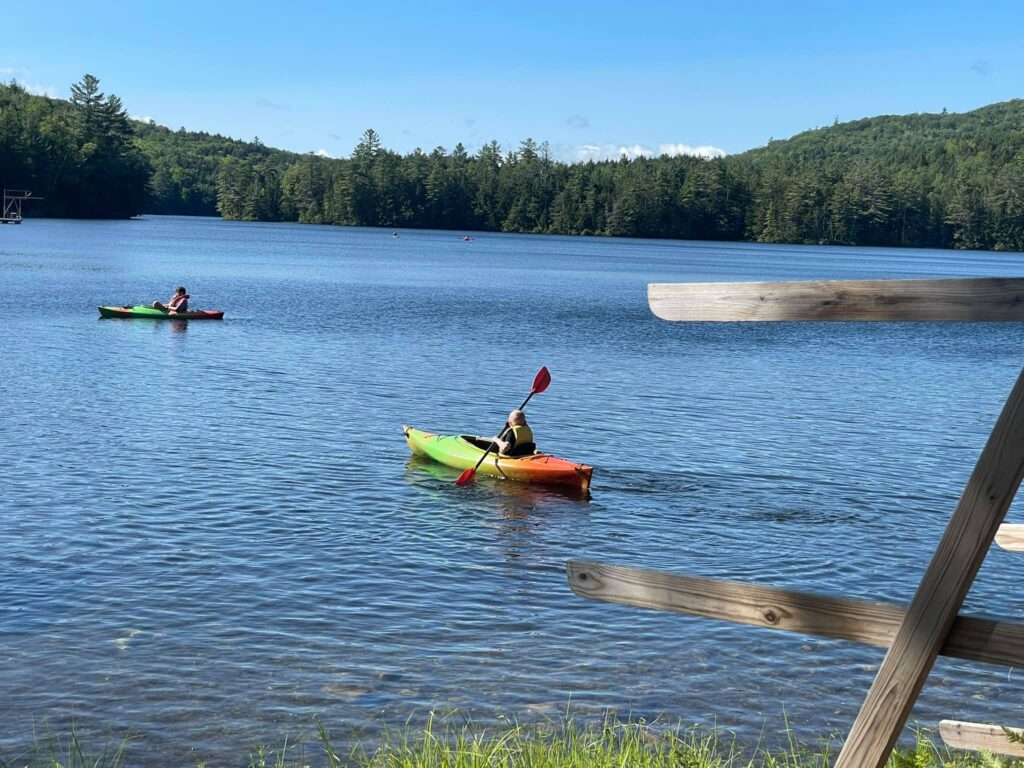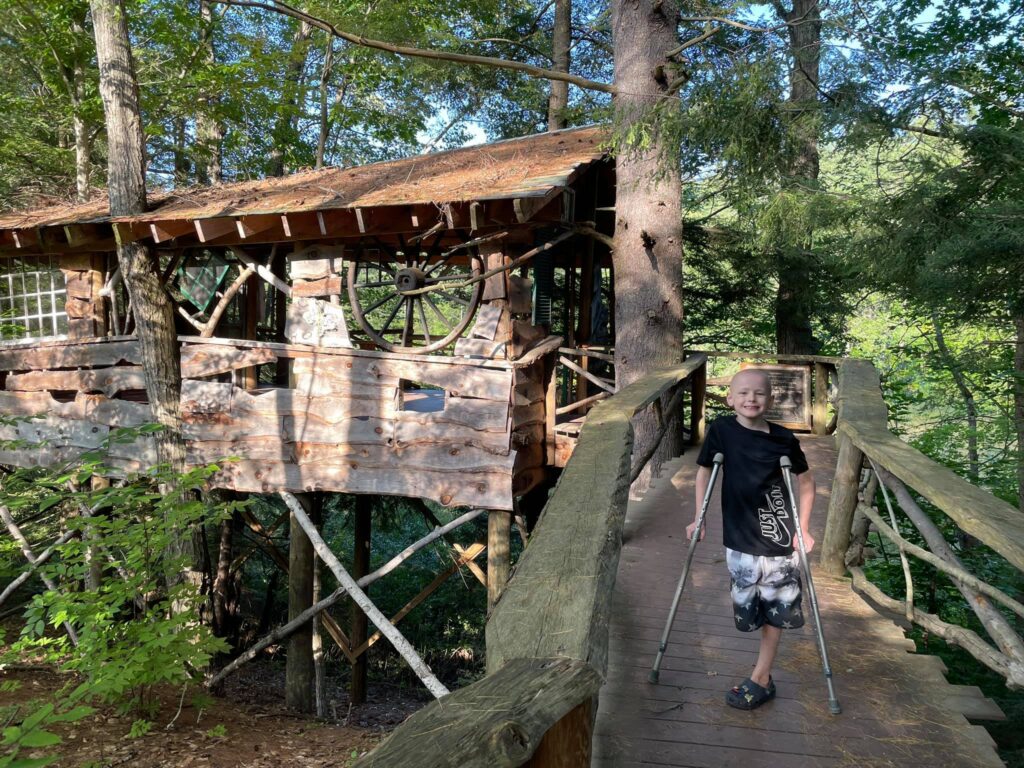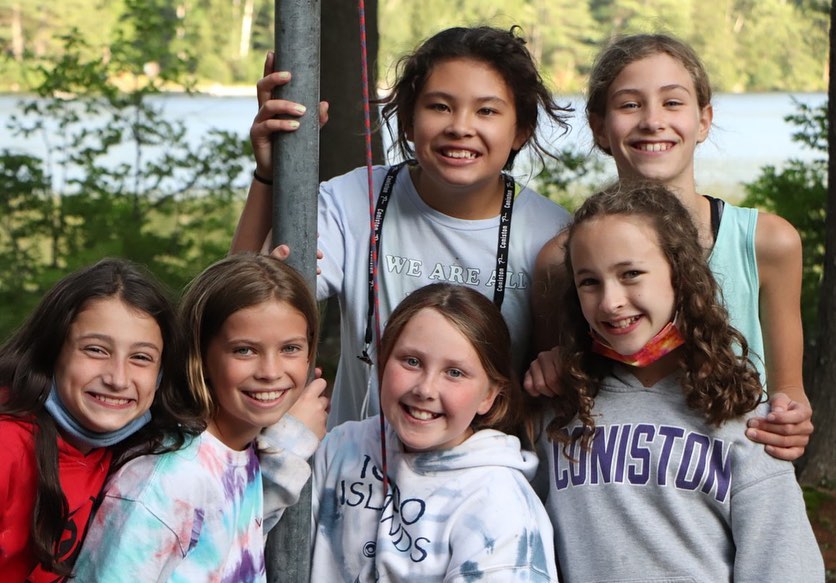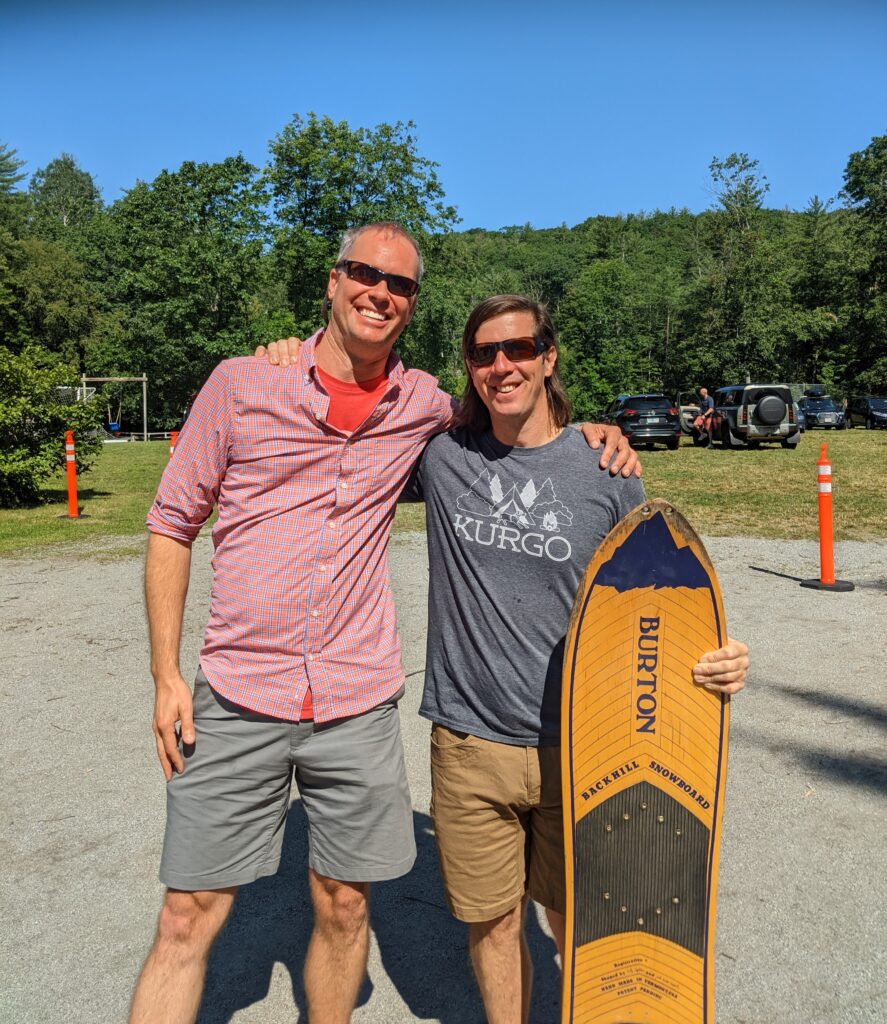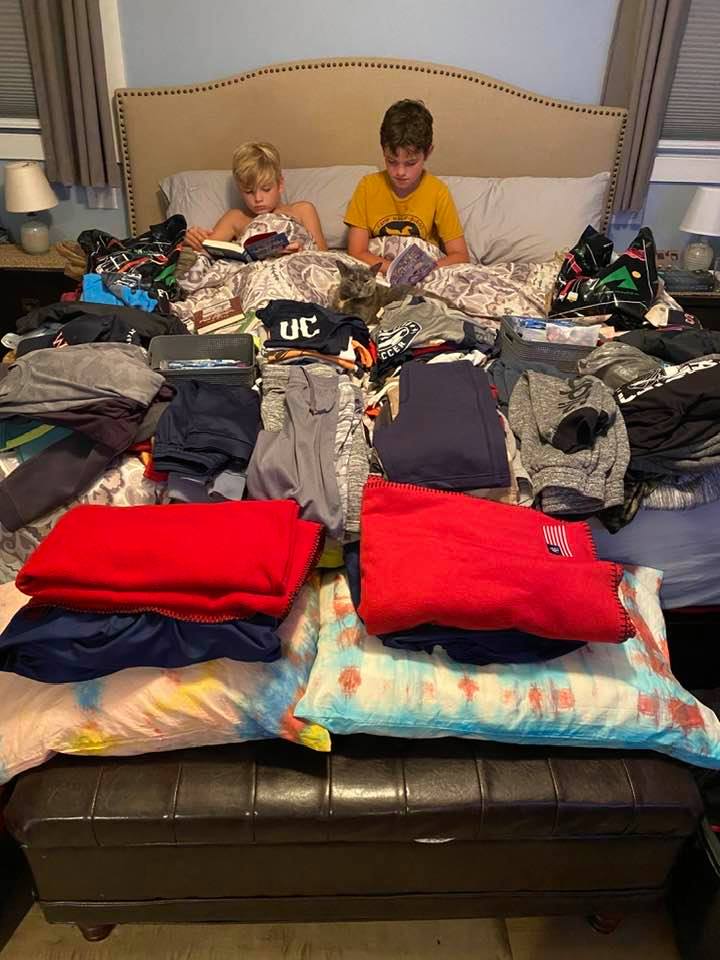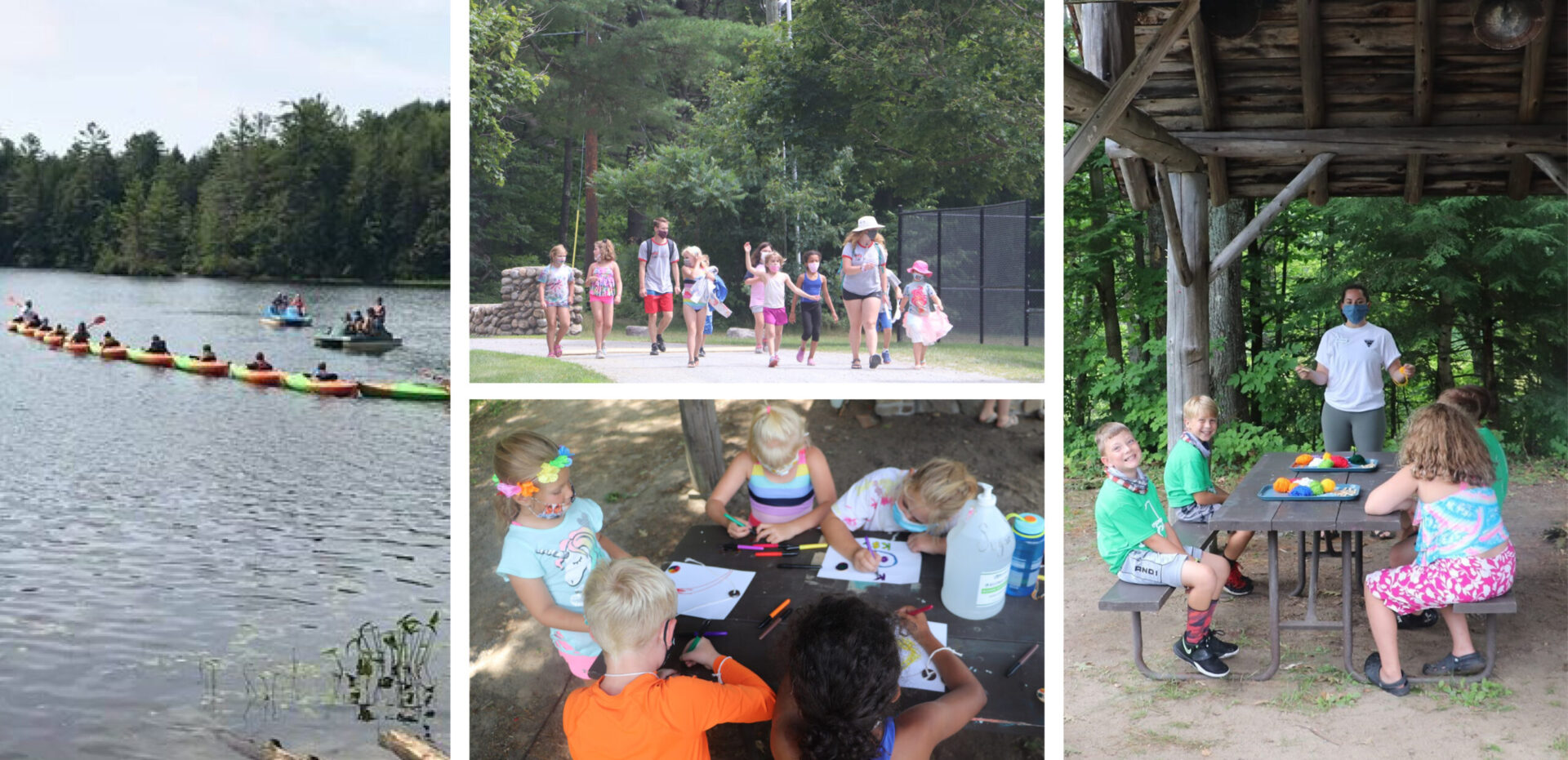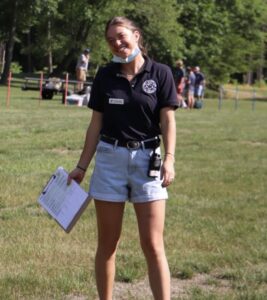
As I sit here from my home-office in Boston in my fall sweater, I find it hard to believe that it has been just over a month since many of us said goodbye to the summer as the allegedly catastrophic hurricane Ida rolled in just in time for Session 5. As I can imagine was the case for many of us on staff who are embarking on new stages in our lives, this past month has been a non-stop transition for me, without a moment to take a step back and reflect on the summer. Now that I can finally take a breath, I feel ready to celebrate the storm that was the summer of 2021, and highlight some of our team’s incredible work. Looking back on the summer, I can confidently say that I have an overwhelming sense of pride in the quality, perseverance, and character of every member of staff for years to come.
When we first arrived at camp in June, however, it was a bit of a different story.
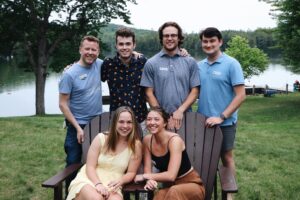
We all wondered how the unprecedented nature of the past year would look at Coniston, a timeless constant for all of us, but a place which hadn’t made any drastic changes (or taken a year off) in any of our lifetimes. As the senior staff began to prepare for the summer, we found ourselves presented with a seemingly endless (and somewhat unanswerable) flood of questions. What extra support would our campers need after a year of isolation? How would homesickness be amplified this summer? Will our staff members who missed their CIT/LIT summers feel prepared to lead a cabin? How will we use the hundreds of benches the maintenance staff built? Is gaga COVID-friendly? (I wish I was kidding) What about Coniston Singers? What will the ice cream social (ICS) look like? What generational knowledge will be lost on staff with two new co-counselors? What would masking look like? What if someone got sick? Two breakfasts? Outdoor dining? The list went on and on.
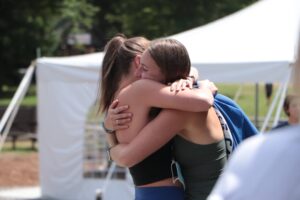
I wanted to be Girls Camp Director knowing that this summer would present some additional challenges, and because it would be many of my former campers’ first year on staff, but when we sat down for our first morning meeting in the corner office with this fat list of unknowns, I gotta admit I was nervous.
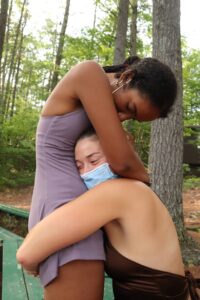
This summer was tough for many of us. While the pictures on Instagram and Facebook showed so many of the genuinely great little moments, (thank you Margaret & Lorraine) they did not always capture the true challenge for staff that was running Coniston amidst a pandemic after a summer away. Outdoor dining wasn’t always fun. We missed some of our international friends who couldn’t make it overseas. The majority of staff were first year staff members. More campers than I had ever seen before were in need of mental health support and older campers were homesick. Check-in day Session 1 was… long.
If Coniston has taught me anything over the past 11 years, it is that if you present a team of strong-willed, passionate, hard-working young adults with any challenge, they will rise to the occasion. And they sure did. Staff gave us constant feedback about what their campers were struggling with, and we made adjustments each day to try and meet their needs. Every challenge faced this summer was met with resilience, competency, and boldness of staff and campers alike to find creative solutions. A third period land sports class readily helped staff move dozens of benches to the clearing behind the dining hall for what might have been the most epic talent show of all of my years on staff. Our new international staff members from Mexico, Columbia, and Switzerland brought an incredible and needed vibrant energy to camp. Meg Davis and Katie Bosco used their fellowship which focused on mental health to become a fundamental support and line in the chain-of-command for staff and campers to talk to and work with. For campers who needed additional help and worked with therapists at home, we connected them with their therapists over the phone who reminded them of their existing coping strategies and how to apply them to camp, to ensure that they could make it through their two weeks.
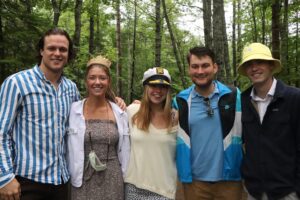
Outside of the challenges, this summer was one of progress and one I am so proud to have been a part of. It is hard to explain, but the culture at camp this summer felt different, not because of the pandemic changes, but perhaps because of the new generation of staff setting the tone and leading the way for all of us. Staff was vibrant and excited, representative of the years and years of enthusiastic counselors who came before us, but there was also an added level of social consciousness indicative of 2021. For the first time, staff and campers actively and enthusiastically introduced themselves using their pronouns, which made it known that all Conistonians were welcomed. Without question, we called campers by the names they identified with, and opened ourselves up to learning and growing as a culture.
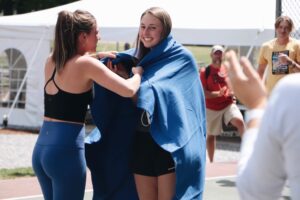
I sent a feedback form to staff a few days ago to ensure I was representing the recap of the summer properly, and I was overwhelmed by the depth of their responses. I am excited to share a few of them here.
When asked “What are some positive changes camp made this summer?” one staff member shared, “I cannot discern the cause of the change, but the staff atmosphere was more kind and welcoming, especially among Boy’s Staff.”
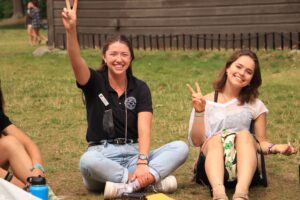
Another staff member shared this intangible feeling of inclusion, stating, “We created a space for everyone to express themselves in any way they chose and added pronouns when introducing ourselves!”
While missing a summer of camp impacted the confidence of our staff initially, having fresh staff members in the majority allowed for a somewhat of a reset and rethinking of our culture. A Co-Ed Vespers that I had started during my own fellowship in 2019 became a cemented tradition, boy’s staff made special shirts for their ICS song, and we had open conversations about identity and respect. Coniston continued to be the place we all know and love, while adapting to the latest understandings of how to be welcoming and inclusive. We even added equity and inclusion into our core values!
Another question I asked staff to reflect on was, “What were some of the most rewarding moments of your summer?” One staff member wrote about a wonderful moment with her camper that I thought was worth sharing:
Watching my campers go from being homesick and insecure to sad about wanting to leave camp on the last day was so rewarding—this one camper, in particular, brought tears to my eyes the most. I had a camper who very much wanted to leave on the first day of the session. After talking with her one-on-one and giving her coping strategies to deal with her homesickness (one of which was journaling!), she soon started a camp journal of everything that she loved about Camp. She wrote down every detail of each day and was never seen without her notebook. One day, when we were walking back from Vespers, she grabbed my hand and hugged me from behind, whispering, “I love camp. I never want to leave.” It brought tears to my eyes to see how far she had come.
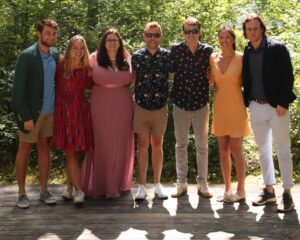
This is just one anecdote of the hundreds of stories each camper and staff member holds in their hearts, and the perseverance and strength of each camper and staff member this summer will carry with them to prepare them for future challenges and hardships, just like it always has. On the last few days of camp, when everyone always tries to see who will be back next summer, I was pleasantly surprised that every single person I spoke with answered with an unequivocal, resounding yes. While of course we always have a high staff return rate, there was something about overcoming the challenges of this summer that brought staff closer together than I ever had seen before, and created something truly special.
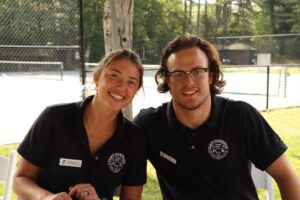
Summer 2021 will go down in the books. For all of us who were on staff this summer, we know that this quick recap does not capture the lowest of the lows and the highest of the highs of those few months; but it was my best attempt. For families who sent your children to camp this summer for the first time, thank you for taking the leap of faith and trusting us with your most treasured loved-ones. Looking back on this summer reminds me that Coniston is not just a camp, it is the most indescribable feeling of joy, love and support that we all need a little more of in our lives. Coniston Community, let’s take that with us this year and give out a little extra love and camp spirit, because we are so lucky to be a part of something so beautiful.
